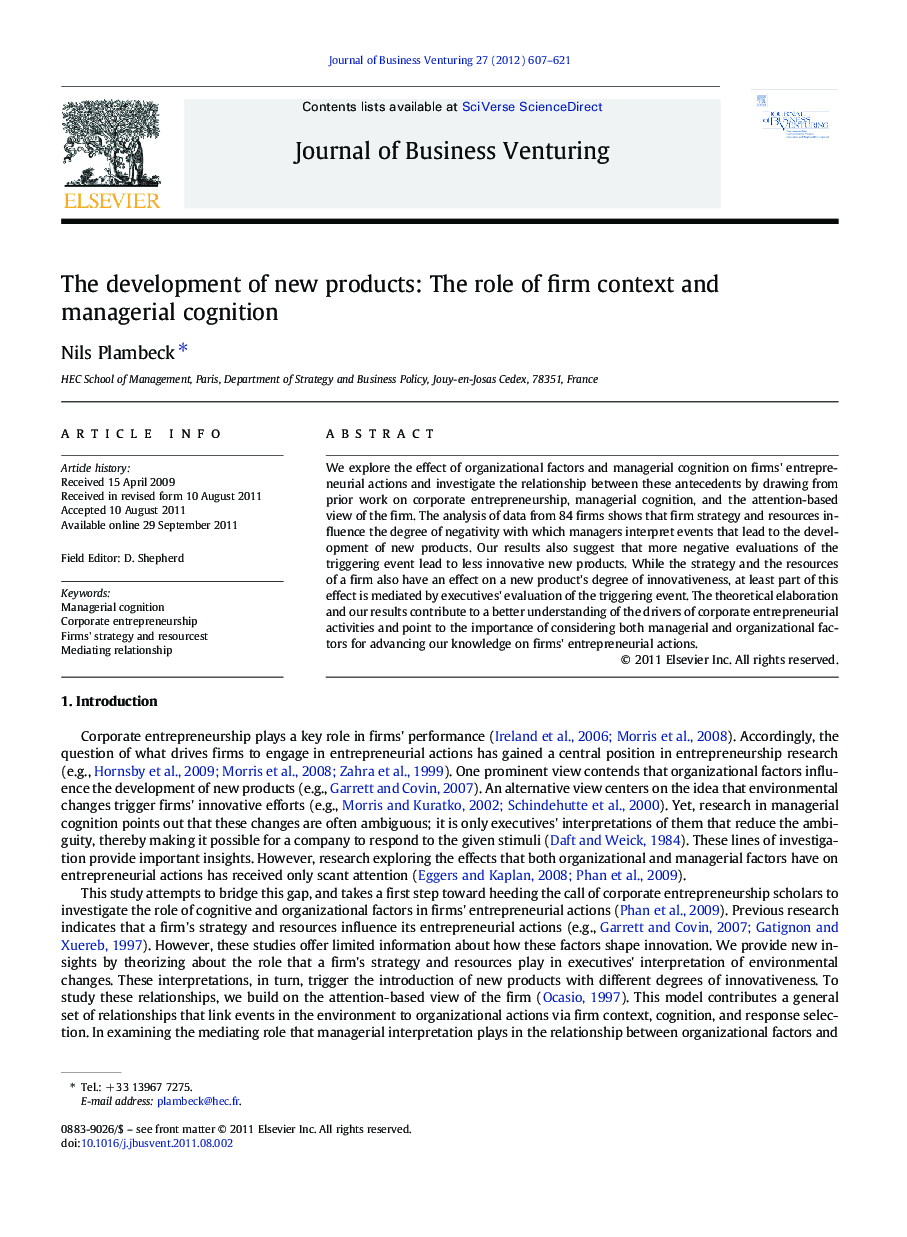| Article ID | Journal | Published Year | Pages | File Type |
|---|---|---|---|---|
| 1019418 | Journal of Business Venturing | 2012 | 15 Pages |
We explore the effect of organizational factors and managerial cognition on firms' entrepreneurial actions and investigate the relationship between these antecedents by drawing from prior work on corporate entrepreneurship, managerial cognition, and the attention-based view of the firm. The analysis of data from 84 firms shows that firm strategy and resources influence the degree of negativity with which managers interpret events that lead to the development of new products. Our results also suggest that more negative evaluations of the triggering event lead to less innovative new products. While the strategy and the resources of a firm also have an effect on a new product's degree of innovativeness, at least part of this effect is mediated by executives' evaluation of the triggering event. The theoretical elaboration and our results contribute to a better understanding of the drivers of corporate entrepreneurial activities and point to the importance of considering both managerial and organizational factors for advancing our knowledge on firms' entrepreneurial actions.
► We show that managerial cognition needs further attention in corporate entrepreneurship research. ► Context within which managerial cognition takes place needs to be considered. ► Results show that firm context plays an important for interpretation of changes and the triggered entrepreneurial actions. ► Findings underline the importance of multi-level approaches for understanding entrepreneurial actions.
